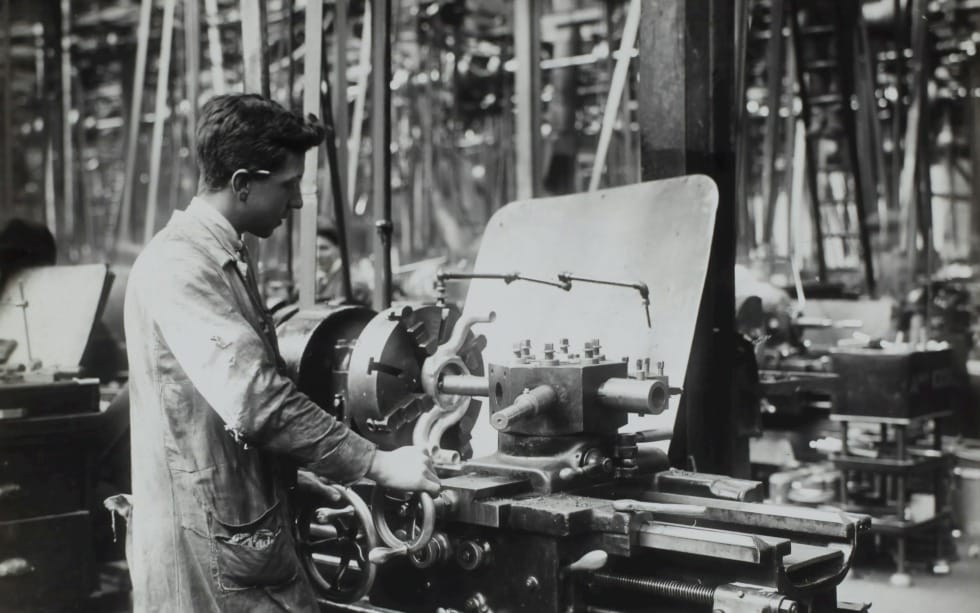What Does Labor Day Teach Us About Love?
While Labor Day is a chance to take a break from work, it's also an opportunity to reframe how we approach work in the first place.

In case you're in need of a little history lesson, Labor Day in the United States originated from the labor movement of the late 19th century, a period marked by harsh working conditions, long hours, and unsafe factories. Workers began organizing strikes and rallies to demand fair wages, shorter working hours, and safer working conditions.
The first Labor Day parade took place on September 5, 1882, in New York City, organized by the Central Labor Union, and it drew thousands of workers who marched in solidarity. As the movement spread, states gradually adopted the holiday, and in 1894, following a series of labor strikes and unrest, President Grover Cleveland signed legislation making Labor Day a national holiday.
Since then, it has been observed on the first Monday in September as a celebration of the contributions of American workers. If you're like me, Labor Day often feels like the unofficial end of summer. It's a time to kick back and think with dread about the impending cold. (My wife Janan thinks I am much too pessimistic and likes her drab fall rainy days)
Yet, beneath the surface of rest and recreation lies a deeper truth: work itself is a gift from God, and Labor Day offers us a moment to reflect on how we approach it.
Work Is a Blessing
From the beginning, Scripture shows us that work was part of God’s design. In Genesis, Adam was placed in the garden to work it and take care of it. Work was never meant to be a punishment but an expression of stewardship, creativity, and purpose. Sin later twisted work into something marked by sweat and struggle, but the essence of labor as a way to honor God and serve others remains.
Many of us know what it’s like to feel the weight of endless tasks, the stress of deadlines, or the quiet ache of wondering if what we do matters. I'm feeling those very pressures as I type these words. But Labor Day is an opportunity to pause and reflect on the fact that our labor is not in vain.
Paul reminds us in 1 Corinthians 15:58 to “always give yourselves fully to the work of the Lord, because you know that your labor in the Lord is not in vain.” The key is to "labor in the Lord." This means giving yourself fully to God’s work, knowing that every act of faithfulness done in Christ has eternal value.
Rooted in the hope of the resurrection, this kind of labor isn’t limited to church activities but includes all service, work, and obedience carried out with Christ as the source and goal.
Perhaps you've gotten caught up in the spin cycle of thinking that what you do doesn't matter. That you just work a 9-5 deadbeat job that has zero eternal ramifications. That your boss never notices the hard work you put in and never compensates you accordingly.
I get it. But here's a thought that might help you.
Make Every Moment an Act of Love
Several months ago, I spent an evening in prayer, feeling stressed by all the pressures I faced. It seemed the longer I prayed, the more stressed I became.
Doing my best to set my emotions aside, I walked down the hallway to where three of my four kids were sleeping. As I lay in the room, listening to their snores and heavy breathing, I was reminded of God's Fatherlike care for me and sensed God whisper these words: "Ezra, why don't you stop overthinking those things you cannot control and instead make every moment an act of love?"
That phrase, "every moment and act of love," has given me great peace. It reminds me that, despite everything on my plate, my primary focus each day is to work as an act of love towards God and others.
When we labor out of a desire to build our own kingdoms and make a name for ourselves, we grow exhausted. But when we labor out of a desire to love God and love others more fully, we can find value and purpose in even the most seemingly meaningless tasks.





